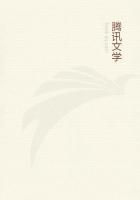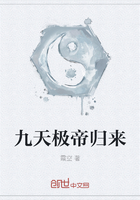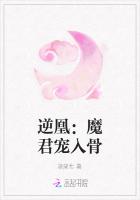"I am afraid," she said, "if our fortunes do not quickly mend, that we shall have to buy two little grindstones. You know I could help you at that sort of thing."For a long time we sat together and talked, and devised many plans for the future. I did not think it necessary yet for me to look out for a pin contract; but I must find some way of ****** money, or we should starve to death. Of course, the first thing that suggested itself was the possibility of finding some other business. But, apart from the difficulty of immediately obtaining remunerative work in occupations to which I had not been trained, I felt a great and natural reluctance to give up a profession for which I had carefully prepared myself, and which I had adopted as my life-work. It would be very hard for me to lay down my pen forever, and to close the top of my inkstand upon all the bright and happy fancies which I had seen mirrored in its tranquil pool. We talked and pondered the rest of that day and a good deal of the night, but we came to no conclusion as to what it would be best for us to do.
The next day I determined to go and call upon the editor of the journal for which, in happier days, before the blight of "His Wife's Deceased Sister" rested upon me, I used most frequently to write, and, having frankly explained my condition to him, to ask his advice. The editor was a good man, and had always been my friend. He listened with great attention to what I told him, and evidently sympathized with me in my trouble.
"As we have written to you," he said, "the only reason why we did not accept the manus you sent us was that they would have disappointed the high hopes that the public had formed in regard to you. We have had letter after letter asking when we were going to publish another story like `His Wife's Deceased Sister.' We felt, and we still feel, that it would be wrong to allow you to destroy the fair fabric which you yourself have raised. But," he added, with a kind smile, "I see very plainly that your well-deserved reputation will be of little advantage to you if you should starve at the moment that its genial beams are, so to speak, lighting you up.""Its beams are not genial," I answered. "They have scorched and withered me.""How would you like," said the editor, after a short reflection, "to allow us to publish the stories you have recently written under some other name than your own? That would satisfy us and the public, would put money in your pocket, and would not interfere with your reputation."Joyfully I seized the noble fellow by the hand, and instantly accepted his proposition. "Of course," said I, "a reputation is a very good thing; but no reputation can take the place of food, clothes, and a house to live in, and I gladly agree to sink my over-illumined name into oblivion, and to appear before the public as a new and unknown writer.""I hope that need not be for long," he said, "for I feel sure that you will yet write stories as good as `His Wife's Deceased Sister.'"All the manus I had on hand I now sent to my good friend the editor, and in due and proper order they appeared in his journal under the name of John Darmstadt, which I had selected as a substitute for my own, permanently disabled. Imade a similar arrangement with other editors, and John Darmstadt received the credit of everything that proceeded from my pen.
Our circumstances now became very comfortable, and occasionally we even allowed ourselves to indulge in little dreams of prosperity.
Time passed on very pleasantly. One year, another, and then a little son was born to us. It is often difficult, I believe, for thoughtful persons to decide whether the beginning of their conjugal career, or the earliest weeks in the life of their first-born, be the happiest and proudest period of their existence. For myself I can only say that the same exaltation of mind, the same rarefication of idea and invention, which succeeded upon my wedding day came upon me now. As then, my ecstatic emotions crystallized themselves into a motive for a story, and without delay I set myself to work upon it. My boy was about six weeks old when the manu was finished, and one evening, as we sat before a comfortable fire in our sitting-room, with the curtains drawn, and the soft lamp lighted, and the baby sleeping soundly in the adjoining chamber, I read the story to my wife.
When I had finished, my wife arose and threw herself into my arms. "I was never so proud of you," she said, her glad eyes sparkling, "as I am at this moment. That is a wonderful story!
It is, indeed I am sure it is, just as good as `His Wife's Deceased Sister.'"As she spoke these words, a sudden and chilling sensation crept over us both. All her warmth and fervor, and the proud and happy glow engendered within me by this praise and appreciation from one I loved, vanished in an instant. We stepped apart, and gazed upon each other with pallid faces. In the same moment the terrible truth had flashed upon us both. This story WAS as good as "His Wife's Deceased Sister"!
We stood silent. The exceptional lot of Barbel's super-pointed pins seemed to pierce our very souls. A dreadful vision rose before me of an impending fall and crash, in which our domestic happiness should vanish, and our prospects for our boy be wrecked, just as we had began to build them up.
My wife approached me, and took my hand in hers, which was as cold as ice. "Be strong and firm," she said. "A great danger threatens us, but you must brace yourself against it. Be strong and firm."I pressed her hand, and we said no more that night.
The next day I took the manu I had just written, and carefully infolded it in stout wrapping-paper. Then I went to a neighboring grocery store and bought a small, strong, tin box, originally intended for biscuit, with a cover that fitted tightly. In this I placed my manu, and then I took the box to a tinsmith and had the top fastened on with hard solder. When I went home I ascended into the garret and brought down to my study a ship's cash-box, which had once belonged to one of my family who was a sea-captain. This box was very heavy, and firmly bound with iron, and was secured by two massive locks.
Calling my wife, I told her of the contents of the tin case, which I then placed in the box, and having shut down the heavy lid, I doubly locked it.
"This key," said I, putting it in my pocket, "I shall throw into the river when I go out this afternoon."My wife watched me eagerly, with a pallid and firm-set countenance, but upon which I could see the faint glimmer of returning happiness.
"Wouldn't it be well," she said, "to secure it still further by sealing-wax and pieces of tape?""No," said I. "I do not believe that any one will attempt to tamper with our prosperity. And now, my dear," I continued in an impressive voice, "no one but you, and, in the course of time, our son, shall know that this manu exists. When I am dead, those who survive me may, if they see fit, cause this box to be split open and the story published. The reputation it may give my name cannot harm me then."















